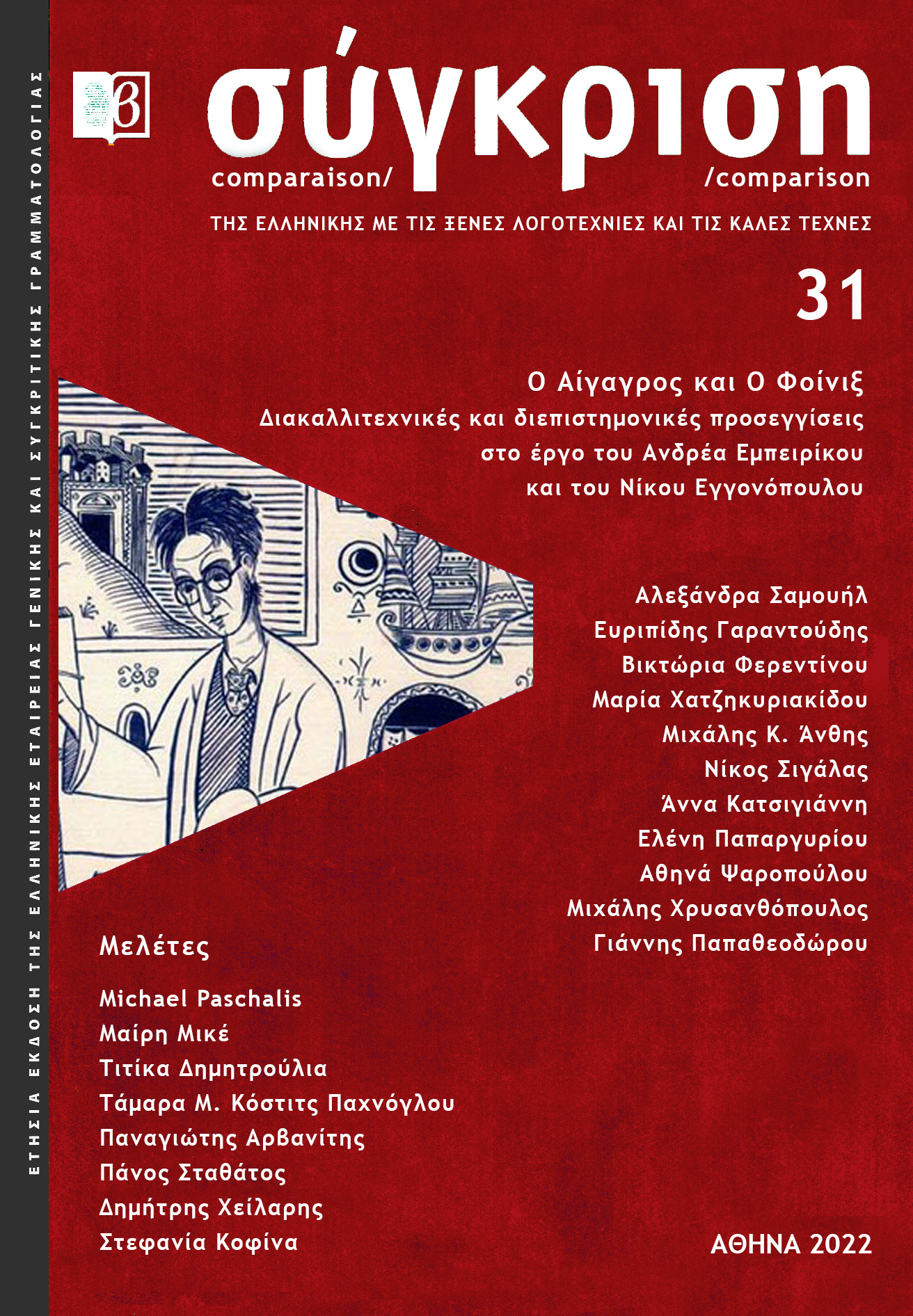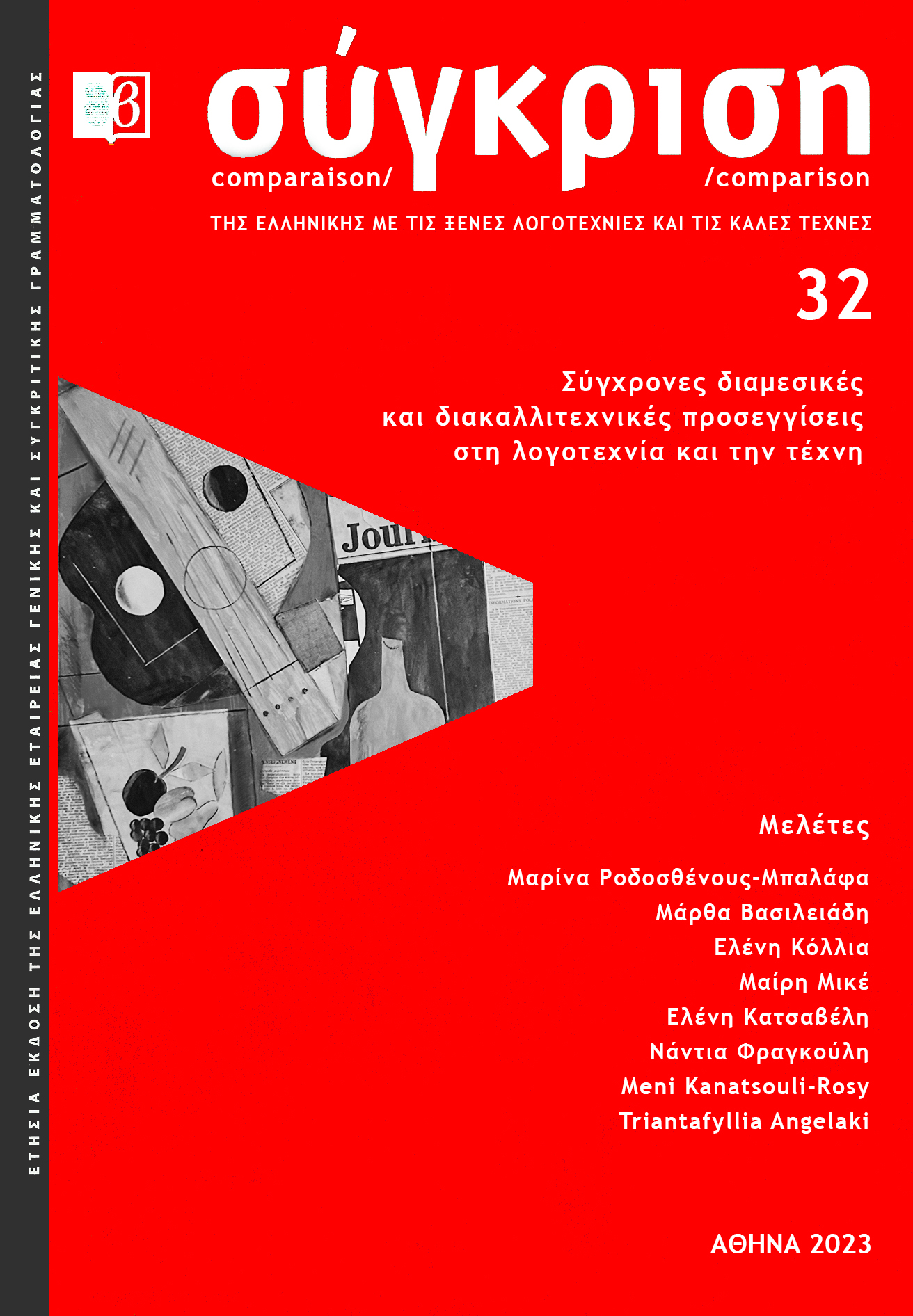ΜΑΙΡΗ ΜΙΚΕ, Τα δάκρυα της πέτρας. Λογοτεχνικές αναπλάσεις του μύθου της Νιόβης
Abstract
The aim of this essay is the study of recreations and transformations of the myth of Niobe and Niobidae in modern Greek literary texts of the end of 19th and 20th centuries. The research of the sources place the poetry in one primary position: a lot of poets (e.g. Palamas, Markoras, Varnalis, Ritsos) and one novelist (T. Athanasiadis) recreate the basic thematic lines of the myth and insist on divisions between life and death, loss and revengeful mania, deadening figure and living impetuous emotion or even more to redemptive petrifaction.
As the metamorphoses of the myth of Niobe, at least the most of them, are revolved round the maternal grief and the plea, the focus and the insistence on human insult are cancelled. Niobe - and the poet who suffers along with her – as is not arrogant but just sorrowful, is able, for example, to transform her accumulated grief into love, to search in existential surroundings the revival through the erotic desire or/and thematize the power of art for the achievement of her presence in the long duration of time. From this aspect, a signifying displacement is noticed: by projecting a distressed human existence the divine presence is confined only indirectly, that is from the consequences of the relentless punishment.
Article Details
- How to Cite
-
Μικέ Μ. (2022). ΜΑΙΡΗ ΜΙΚΕ, Τα δάκρυα της πέτρας. Λογοτεχνικές αναπλάσεις του μύθου της Νιόβης. Comparison, 31, 144–159. https://doi.org/10.12681/comparison.32426
- Issue
- Vol. 31 (2022)
- Section
- Articles

This work is licensed under a Creative Commons Attribution-NonCommercial-ShareAlike 4.0 International License.
Authors who publish with this journal agree to the following terms:
- Authors retain copyright and grant the journal right of first publication with the work simultaneously licensed under a Creative Commons Attribution Non-Commercial License that allows others to share the work with an acknowledgement of the work's authorship and initial publication in this journal.
- Authors are able to enter into separate, additional contractual arrangements for the non-exclusive distribution of the journal's published version of the work (e.g. post it to an institutional repository or publish it in a book), with an acknowledgement of its initial publication in this journal.
- Authors are permitted and encouraged to post their work online (preferably in institutional repositories or on their website) prior to and during the submission process, as it can lead to productive exchanges, as well as earlier and greater citation of published work (See The Effect of Open Access).




